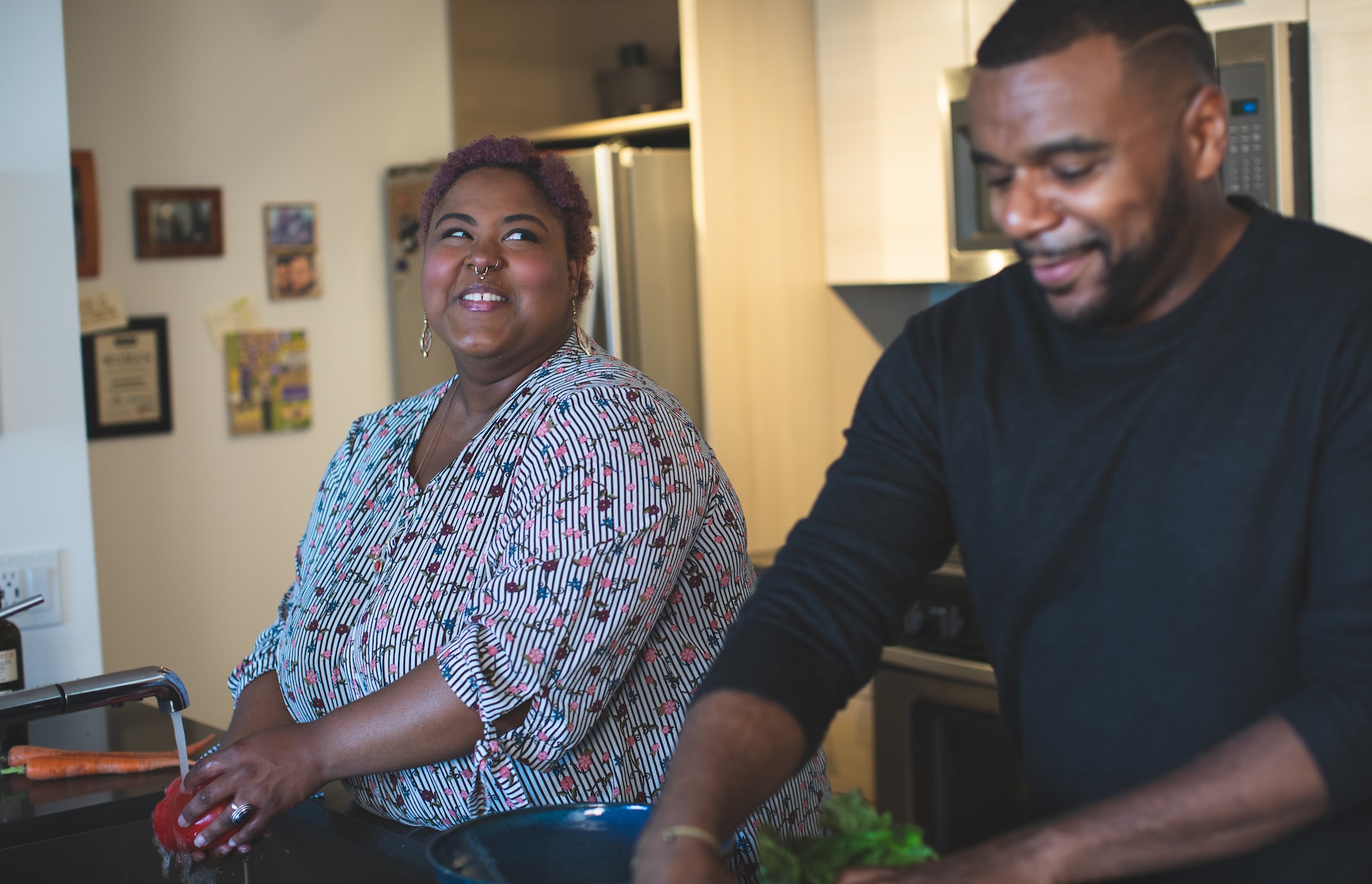People are like worlds unto themselves. Everyone has his or her own way of seeing the world, and certain experiences he or she has had helped shape that seeing. Each of us has our pet peeves, the things that excite us, and our own dreams, hopes, and fears, which is why good communication is essential.
We walk around carrying all this every day, and we interact with other people who are carrying their own complexity. The way we bridge these worlds and make sense to each other is through good communication. Redding Christian Counseling can help you develop healthy communication skills to foster understanding and deeper connections in your relationships.
What is good communication?
Good communication is when you are able to understand the needs and concerns of another person. It’s when you can see them for who they are, and you enable them to feel seen, heard, and understood.
You’ve probably experienced what it feels like when people aren’t getting you. You’re trying to explain to them what you’re feeling. For example, you’re frustrated with them for not respecting your boundaries around money, and they just don’t seem to get it.
In fact, they misunderstand your intention and end up making you feel like you’re the bad guy for wanting your boundaries respected. One part of good communication is about making sure no one else feels that misunderstood or has their intentions mistaken in that way.
The other part of good communication is about how you express yourself. Have you ever had a situation in which you wanted to say something in a gentle tone of voice, but you got agitated and what came out sounded angry and not at all how you had hoped?
The fact is that there’s a lot that goes into being able to say exactly what you want to say and ensure that the other person gets your message. Not only do you have to be aware of things like your body posture, tone of voice, and eye contact – in other words, the non-verbal aspects of communication – but you also must use words that are appropriate in the situation.
There’s no use, for example, in using plenty of big words to explain something to a 5-year-old; they won’t get it, and you’ll end up frustrated. Good communication means being aware of your audience and calibrating what you say and how you say it so that it is received in the spirit in which it was intended.
All of this is incredibly challenging. This requires a lot of skills such as listening and great self-awareness. To be honest, most of us don’t think about our  communication. We assume we are competent listeners and that we don’t have any distracting habits that get in the way of clear communication.
communication. We assume we are competent listeners and that we don’t have any distracting habits that get in the way of clear communication.
Often, we only have cause to think about how good we are at communicating when we are already deep into a conflict with a colleague, spouse, child, friend, neighbor, or stranger. It’s only then that we might think, “Perhaps I shouldn’t have said that” and we discover that we probably say similar things more often that we were aware. The truth is that we could all do a little better and can use some sprucing up of our communication skills.
Every relationship requires good communication.
Because people are so different from one another, you can’t assume that the way you like to do things is the way they like. We are biased toward seeing things our way, and that’s a good starting point for figuring out how to relate to others, but it makes for a poor ending point.
Sometimes, conflict happens in relationships like marriages because one spouse talks a certain way. For that spouse, that’s how they grew up, and that’s how people in their family speak. For the other spouse, speaking that way is disrespectful. That can be a recipe for conflict. The way to begin addressing it is to recall the greatest commands in the Bible:
“Teacher, which is the greatest commandment in the Law?” Jesus replied: ”‘Love the Lord your God with all your heart and with all your soul and with all your mind.’ This is the first and greatest commandment. And the second is like it: ‘Love your neighbor as yourself.’ All the Law and the Prophets hang on these two commandments.” – Matthew 22: 36-40, NIV
The way to love your neighbor as yourself is to consider carefully who he or she is, just as you would like to be seen for who you are. While speaking sarcastically might work and was endearing within your original family, loving your spouse may mean becoming aware that in her family that’s not how people talk to each other, and it doesn’t land as loving.
Every relationship requires us to do this careful recalibration to recognize that other people are different from us. How they function may mean we change how we express ourselves so that they feel heard and loved.
Every relationship needs good communication so that the people in it are heard, conflict is resolved in a healthy manner, and felt needs are met because people understand each other, and people know what is required of them. Many conflicts in a relationship can be avoided by really listening to each other to know what the actual concerns are.
How to get better at communication.
Being a good communicator doesn’t happen overnight, as there are habits to unlearn and new ones to take on. But
it’s possible to become a better communicator and develop healthier relationships with other people. There are a few things to keep an eye on, including the following:
Be aware of yourself.
Self-awareness is a great tool in communication. Being self-aware helps you understand how you come off when people are interacting with you, and you can do what you can to get rid of the noise that gets in the way of hearing them and of them hearing you.
If your posture screams “I’m not interested!” then a person might speak with you and walk away feeling like you haven’t heard a word despite all appearances. Some men look gruff and intimidating. It can make it hard for people to speak their minds around you. There may be nothing you can do to look less gruff but you can make small changes.
Let’s say you’re a tall guy and people find that intimidating. One way to overcome that is to sit down so that your height isn’t such a big deal in the interaction. If you’re intentionally trying to intimidate others, you need to address why you’re doing that. Is it a defense mechanism, a way to feel strong and less vulnerable?
Be willing to be vulnerable.
One issue in our communication is that we often hold back and don’t own our needs and wants. The fear is that if I’m clear, I may be rejected. This happens in dating relationships, where many men play an elaborate game of cat and mouse with women because they don’t want to come off as needy, clingy, or desperate.
A better choice if you like a woman is this: rather than playing a game, be upfront that you want to spend time with her again. It’s a vulnerable position to be in, but at least she will know where you stand. The same goes for other situations – men often don’t want their inner desires to be made known, preferring to posture instead. The unfortunate result is that your true needs go unspoken and unmet.
 Don’t let anger get in the way.
Don’t let anger get in the way.
The Bible says, “Know this, my beloved brothers: let every person be quick to hear, slow to speak, slow to anger; for the anger of man does not produce the righteousness of God” – James 1:19-20, ESV. When our emotions lead the way, that can be an obstacle to good communication.
Not only will you not hear the other person because you are in your feelings, but you may distort what he or she is saying through the prism of your emotions. Set aside anger because it can change the tenor of what you’re saying.
Be willing to learn.
Good communication isn’t an easy ask. It takes time to learn how to be an effective listener. The willingness to learn will position you well to grow in your communication ability. There will be successes and failures as you grow. But persevering in your journey of learning will help you build better and healthier relationships.
Growing as a communicator through Christian counseling.
Being a good communicator is hard. There are many obstacles that make good communication difficult. Working through it all takes time and the desire to change and be adaptable. We are relational creatures, and God desires our relationships to be fulfilling. Christian counseling is a unique space in which you can gain an appreciation for your relationships and the tools you need to make those relationships flourish.
Your counselor can be a sounding board and coach who will help you grow as an effective listener and good communicator. Through exercises done during and outside your sessions, you can begin to grow in self-awareness, articulate yourself better, and learn how to be an empathetic presence for others.
If you’re finding communication to be a struggle and a source of conflict in your relationships, reach out to Redding Christian Counseling for support so you can begin growing as an effective communicator.
“Forehead Kiss”, Courtesy of Hannah Olinger, Unsplash.com, CC0 License; “Happy Couple”, Courtesy of AllGo – An App For Plus Size People, Unsplash.com, CC0 License; “Breakfast”, Courtesy of Nini FromParis, Unsplash.com, Unsplash+ License; “Happy Couple”, Courtesy of Alba Rebecca, Unsplash.com, CC0 License





